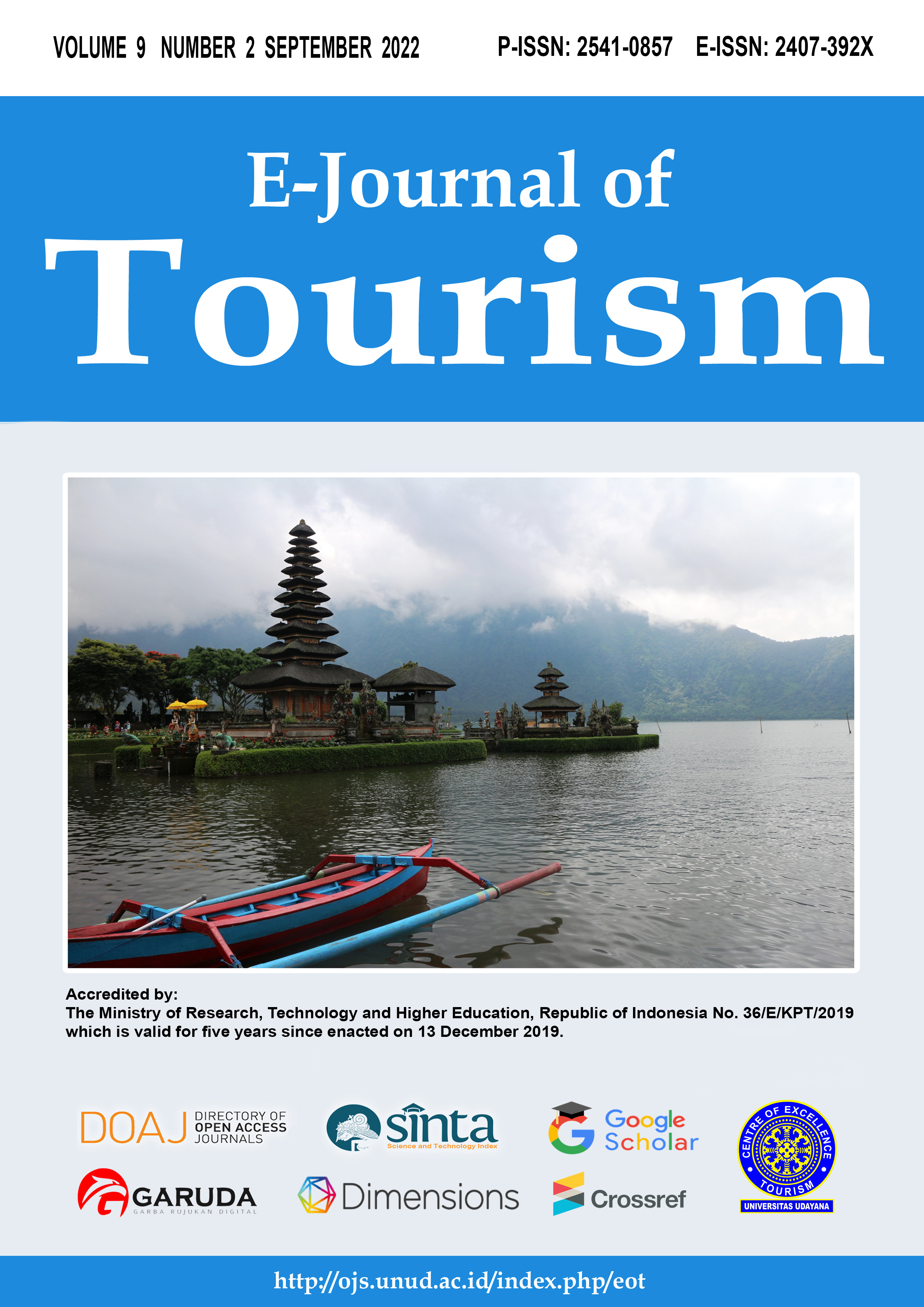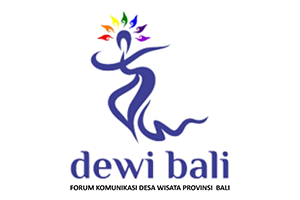The Assessment of Community Participation in The Development of Marine Tourism in the Spermonde Islands
Abstract
As a type of mass tourism that continues to experience an increasing trend of market interest, marine tourism is a very prospective sector to be developed. Especially in its role to improve the welfare of the community in tourism destinations. This can be a solution for many areas that have marine tourism potential but the community is still not developed, such as the Spermonde Islands in Indonesia. By using quantitative descriptive research methods, measurable data in the form of public opinion on questions asked based on indicators collected, and the extent to which the Spermonde Islands community is involved in the development of marine tourism can be mapped. The results state that in general the people of the Spermonde Islands can be said to have participated in tourism activities even though they are still at a lower level. So, in the future, several strategies are needed to increase community participation.
Keywords: marine tourism; community participation; community development
Downloads
References
Cornwall, Andrea. (2008). Unpacking 'participation' models, meanings and practices. Community Dev J, 43. https://doi.org/10.1093/cdj/bsn010.
Marafa, L.M., & Chau, K. (2016). Framework for sustainable tourism development on coastal and marine zone environment. Tourism, Leisure and Global Change, 1, 1-11.
Rif'an, Achmad & Ragil, Candra. (2020). Partisipasi masyarakat dalam pengelolaan pariwisata Pantai Parangtritis. Reka Ruang, 2, 63-74. https://doi.org/10.33579/rkr.v2i2.1476.
Pretty, J. (1995). Participatory learning for sustainable agriculture. World Development, 23(8), 1247–1263. https://doi.org/10.1016/0305-750X(95)00046-F
Tosun, Cevat. (2011). Towards a typology of community participation in the tourism development Process, Anatolia, 10(2), 113-134. https://doi.org/10.1080/13032917.1999.9686975
Anonymous. (2013). Sustainable Tourism for Development Guidebook. UNWTO.
Arikunto, Suharsimi. (2006). Metodologi Penelitian. Bina Aksara.
Hausler, N & Strasdas, W. (2002). Training Manual for Community Based Tourism. Inwen.
Lacy, T. D., Battig, M., Moore, S., & Noakes, S. (2002). Public / Private Partnerships for Sustainable Tourism. In Delivering a sustainability strategy for tourism destinations: Asia Pacific Economic Cooperation Apec Tourism Working Group.
Orams, Mark. (2002). Marine Tourism: Development, Impacts and Management. New York and London: Routledge
R.S, Damardjati. 2007. Istilah-istilah Dunia Pariwisata. Pradya Paramita
Spillane, JJ. (1994). Pariwisata Indonesia. Siasat Ekonomi dan Rekayasa Kebudayaan. Penerbit Kanisius.
Suansri, Potjana. (2003). Community Based Tourism Handbook. REST Project
Sugiyono. (2014). Metode Penelitian Pendidikan Pendekatan Kuantitatif, Kualitatif Dan R&D. Alfabeta.
Veneklasen, Lisa & Miller, Valerie. (2002). A New Weave of Power, People & Politics: The Action Guide for Advocacy and Citizen Participation. Stylus Publishing
Weil, Marie & Reisch, Michael & Gamble, Dorothy. (2013). The Handbook of Community Practice. https://doi.org/10.4135/9781452220819.
Wijaya, Willie. (2004). Kamus Lengkap Inggris-Indonesia. Bintang Jaya

This work is licensed under a Creative Commons Attribution 4.0 International License.
The copyright of the received article shall be assigned to the journal as the publisher of the journal. The intended copyright includes the right to publish the article in various forms (including reprints). The journal maintains the publishing rights to the published articles.




















